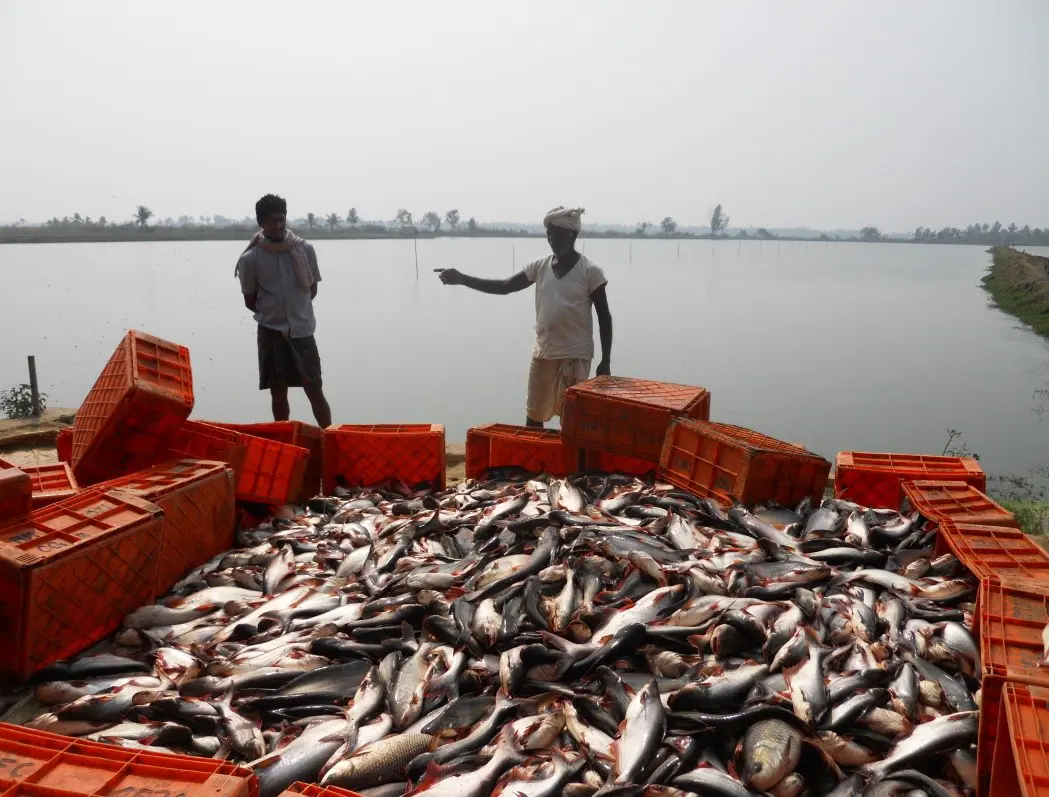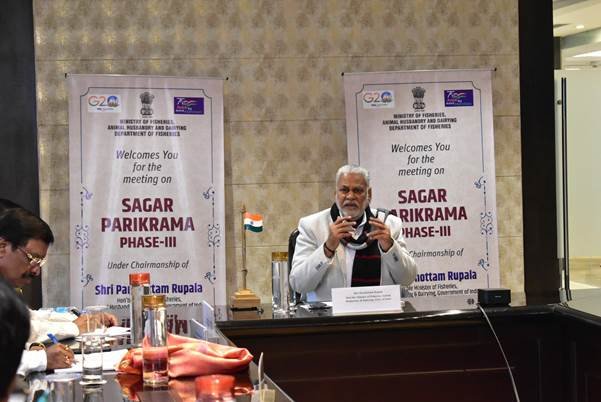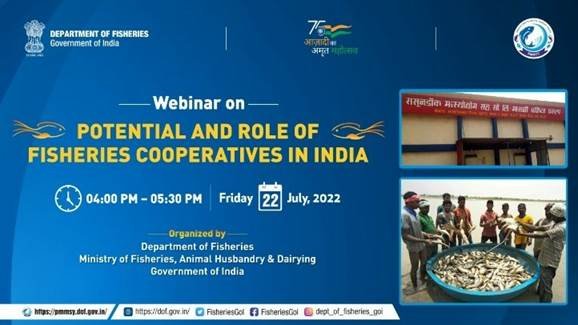Govt pushes for Saline Aquaculture hubs in Haryana, Punjab, Rajasthan, and UP
States propose 5-Hectare limit, Increased Subsidies, and National Committee to boost sustainable shrimp aquaculture.
Union Secretary, Department of Fisheries (DoF), Ministry of Fisheries, Animal Husbandry and Dairying, Dr Abhilaksh Likhi, visited ICAR-Central Institute of Fisheries Education (CIFE), Mumbai and chaired the Review meeting of the Saline Water Shrimp Aquaculture in the Sates of Haryana, Punjab, Rajasthan and Uttar Pradesh through Video Conference in Mumbai. This meeting aimed to tap the potential of saline land resources for aquaculture, generating employment and livelihood opportunities. Likhi interacted with farmers from Haryana, Punjab, Rajasthan, and Uttar Pradesh for insights and on ground challenges and gaps faced by them in saline water aquaculture.
State-Specific Updates on Saline Aquaculture and Shrimp Farming
During the meeting, State Fisheries Officials provided updates on the status, progress, and key challenges in promoting inland saline and shrimp aquaculture. Uttar Pradesh highlighted the vast potential of inland saline aquaculture, covering 1.37 lakh hectares in districts such as Mathura, Agra, Hathras, and Raebareli, with significant initiatives supported under the Pradhan Mantri Matsya Sampada Yojana (PMMSY). Rajasthan reported growing momentum in shrimp farming in salt-affected districts like Churu and Ganganagar, with approximately 500 hectares dedicated to the cultivation of Penaeus vannamei, milkfish, and pearl spot. Additionally, a diagnostic lab has been established in Churu under PMMSY. Punjab shared its achievements in expanding shrimp farming in southwestern districts such as Muktsar Sahib and Fazilka, bolstered by the Blue Revolution and PMMSY schemes. Notable developments include a 30-tonne cold storage and ice plant and a dedicated training centre. Haryana demonstrated significant progress in saline aquaculture, having achieved a production of 13,914 tons with an investment of Rs 57.09 crore under PMMSY. Furthermore, ICAR-CIFE shared valuable best practices and technical insights to enhance the productivity and sustainability of saline water aquaculture.
In the states of Haryana, Punjab, Rajasthan, and Uttar Pradesh, approximately 58,000 hectares of saline area has been identified, yet only around 2,608 hectares is currently being utilized. There is huge potential to convert these saline affected areas into aquaculture hubs. These saline-affected lands, often unsuitable for traditional agriculture, hold immense potential to be transformed from wastelands to wealth lands. India, being the second-largest producer of cultured shrimp globally, earns over 65 per cent of its seafood export value from shrimp alone. Despite the country’s vast potential in brackish water and shrimp aquaculture particularly in saline-affected areas, inland saline aquaculture resources continue to remain significantly underutilised.
Challenges Faced by Farmers in Saline Water Aquaculture
In the review, farmers from Haryana, Punjab, Rajasthan, and Uttar Pradesh raised several challenges that are impacting the viability and sustainability of their saline water aquaculture operations. They highlighted issues of high setup costs, inadequate subsidy coverage, and the restrictive 2-hectare area limit for saline water aquaculture. Other significant concerns included fluctuating salinity levels, high land lease rates, reductions in subsidies, and the lack of locally available, high-quality seed.
Proposals for Strengthening the Sector and Collaborative Efforts
In response to these challenges, the states called for enhanced central support to strengthen the sector. Key proposals included raising the unit cost for aquaculture operations to Rs 25 lakh, increasing the area limit from 2 hectares to 5 hectares, and enhancing subsidies for polythene lining. The establishment of an Integrated Aqua Park in Sirsa and improvements to marketing channels were also recommended to ensure better price realization and long-term sustainability. The Department of Fisheries emphasised the need for collaborative efforts between the states, ICAR, and other agencies to develop strategies for utilizing saline land resources more effectively for aquaculture. A focus was placed on organizing awareness campaigns with ICAR, State Fisheries Departments, and other stakeholders to promote shrimp consumption in northern India, gap analysis for development of potential clusters and expand cultivation area in the identified 25 districts of the four States. States were encouraged to leverage Krishi Vigyan Kendras (KVKs) to disseminate technical knowledge, identify new areas for saline aquaculture, and conduct outreach-based research.
States propose 5-Hectare limit, Increased Subsidies, and




